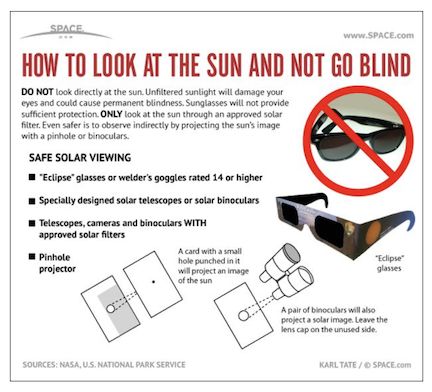When Ice Bergs Come Crashing
The world’s largest iceberg has run aground in shallow waters off the remote island of South Georgia, home to millions of penguins and seals. The iceberg, which is about 1,250 square miles wide and 985 feet tall, appears to be stuck. The saga of the stranding of this iceberg is the culmination of a40-years long story that started when it first broke off the Filchner-Ronne Ice Shelf of Antarctica in 1986.

Experts expect it to start breaking up on the island’s southwest shores, since the tides will now be lifting the iceberg up and down. That will grind the iceberg backwards and forwards, eroding the ice.
Where the iceberg is touching the ice shelf where it is stuck, there are thousands of tiny creatures like coral, sea slugs, and sponge. Their entire universe is being bulldozed by a massive slab of ice scraping along the sea floor. That is catastrophic in the short-term for these species, but they say that it is a natural part of the life cycle in the region. Fishermen fear they will be forced to battle with vast chunks of ice. It could also affect the macaroni penguins feeding in the area.
“Where it is destroying in one place, it’s providing nutrients and food in other places.”
While the macaroni penguins who forage on the shelf where the iceberg is stuck could be affected, scientists in Antarctica say that huge amounts of nutrients are locked inside the ice, and that as it melts, it will create an explosion of new life in the ocean.
“It’s like dropping a nutrient bomb into the middle of an empty desert,” says Professor Nadine Johnston from the British Antarctic Survey. “Without ice, we wouldn’t have these ecosystems. They are some of the most productive in the world, supporting a huge number of species and individual animals, and feeding the biggest animals in the world like the blue whale.” says Professor Huw Griffiths.

Sometimes, what looks like catastrophe, wreckage, destruction on the outside, is really full of blessing on the inside. Rather than fighting the icebergs that come crashing into the shoreline of your life, patiently wait for them to grind away until the richness that lies within the hardship and trial is revealed, creating an explosion of new life.
To ignore the refining work of the grinding trials of life would be unfaithful. It would also be unhealthy. However, we are to process what we experience through the filter of God’s Word and God’s character. That helps us, like the scientists and ecologists, to see that once everything breaks up, there will be blessings for those who are the Lord’s people.
As the Scriptures reveal, while others (or even trials) seem to be intent upon harming us, "... but God intend[s] it for good to accomplish what is now being done, the saving of many lives" (Genesis 50:20, NIV). "And we know that God works all things together for the good of those who love Him, who are called according to His purpose" (Romans 8:28, NIV).
Don't Cry Over Spoiled Milk
Spoiled milk. It’s stinky, and nasty, and can curdle your stomach as much or more than the curds you see floating in the jug.
But spoiled milk isn’t always such a bad thing. One Facebook blogger had thoughts:
If milk goes “bad,” it can become yoghurt. Yoghurt is more valuable than milk.
If it gets even worse, it can turn into cheese. Cheese is more valuable than both yoghurt and milk.

And it’s not just spoiled milk that can morph into things of greater value:
- - If grape juice turns sour, it can ferment and transform into wine
- - Christopher Columbus made a navigational error that lead him to discover America
- - Alexander Fleming’s mistake led him to invent penicillin, saving countless lives since
You are not bad because you made mistakes or experienced failures. Mistakes are the experiences that make you more valuable as a person.
[So], don’t let your mistakes get you down. It is not just the practice that makes perfect. It’s also the mistakes we learn from that make perfect!
As the great inventor Thomas Edison once said, when asked about his many failed attempts at innovation, “I have not failed 10,000 times—I’ve successfully found 10,000 ways that will not work.”
"Brothers, I do not consider that I have made it my own. But one thing I do: forgetting what lies behind and straining forward to what lies ahead, I press on toward the goal for the prize of the upward call of God in Christ Jesus" (Philippians 3:13-14, ESV).
"But he said to me, “My grace is sufficient for you, for my power is made perfect in weakness.” Therefore I will boast all the more gladly of my weaknesses, so that the power of Christ may rest upon me" (2 Corinthians 12:9, ESV).
"For the righteous falls seven times and rises again, but the wicked stumble in times of calamity" (Proverbs 24:16, ESV).
Divine Eyewear
On April 8, 2024, the world stood in awe as God put on a great, cosmic show in the form of a total eclipse of the sun.
According to NASA and Space.org,
The great North American total solar eclipse of April 8 [2024] is over, but remember: Never observe the sun without proper protection. Get a pair of safe solar eclipse glasses from reputable dealers ... to ensure you and your family remain safe when observing future solar eclipses.
If you were actually going to see the moon eclipse the sun you had to put on a pair of specially made glasses. If you decided you were going to do it your way to look at the eclipse without proper eyewear, not only would it appear as nothing more than a big, bright blur, but your eyes would stand to suffer severe damage.

So in other words, to observe the sun, you need special glasses to not only see clearly, but to see safely.
In much the same way, we need God's spiritual glasses to clearly see Him and the world of activity, circumstances, and experiences all around us.
Our spiritual eyes were opened the day He touched us and we believed, but the need for us to daily see His will in our lives requires us to put on the glasses He has provided in His word.
The problem we all have, even if we are already believers in Christ, is that we have a distorted view of what God wants us to see. We go through life ignoring divine perspective.
As we face trials of all sorts that cause us pain, or aggravation, or even anger in us, we struggle to make sense of it all. Yet here are spiritual battles going on all around us. If we could physically see the spiritual world, we would be like the shepherds who saw the angels at Christ's birth and were greatly afraid. We are a part of a greater reality than our 5 senses can perceive.
Only in putting on the glasses of divine perspective, afforded through the Word of God, can we clearly (and safely!) navigate the challenges of life.
"Open my eyes [to spiritual truth] so that I may behold Wonderful things from Your law" (Psalms 119:18, Amplified Bible).
"For the word of God is living and active, sharper than any two-edged sword, piercing to the division of soul and of spirit, of joints and of marrow, and discerning the thoughts and intentions of the heart" (Hebrews 4:12, ESV).